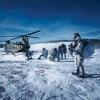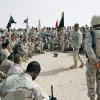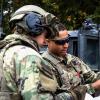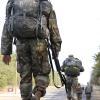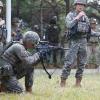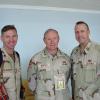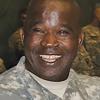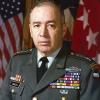Though hundreds of meters away, the catastrophic explosion sent a powerful shock wave through the operations center. As the battle staff watched the aerostat monitors in horror, injured civilians staggered away, covered in dust and blood, while shattered bodies littered the street. Burning and charred vehicles stood everywhere as soldiers, thrown to the ground behind concrete barriers, struggled to their feet. The commander shot a quick glance at the sergeant major, who sprinted out the door to alert the tactical command post to get...
Center for Leadership Essays
The “On Leadership” section at the front of Army Magazine is designed to stimulate thought and discussion on how to build and lead effective, cohesive, and honorable teams across the Total Army.
These essays were previously published in ARMY magazine.
In developing great units, the most important and impactful responsibility a leader has is creating and continuously fostering a positive leadership climate. This is important and impactful for both short- and long-term reasons. In the short term, it has the single greatest impact on the individual and collective performance of units. In the long run, it determines the types of soldiers and leaders you are developing for their next assignments and beyond. U.S. Army culture is embedded in things like the military ethic, Army Values and...
Most people assume followership to be the act of following a leader’s orders. Though followership requires a commitment to achieving organizational goals by following a leader’s instructions, it is not about mindlessly conforming to the influence of whoever is in charge. Instead, followership is the art of adapting and applying the values and principles of the organization while responding to a leader’s influence. Discussing followership is relevant to leadership. Recognizing effective followers and cultivating followership is as...
I crouched in the concrete foxhole and anxiously awaited the tower’s commands. As a freshman ROTC cadet on my first Leadership Lab weekend, I was eager to try out my marksmanship with the M16A1 rifle I clutched in my sweaty hands. “Do you have any questions?” a voice asked gently. I glanced up to see the most fearsome soldier I had ever laid eyes on. His spit-shined jump boots sparkled like mirrors, and his olive drab uniform was starched and crisp. A well-worn green beret rested just above his steely dark eyes. I had just met the man...
Born and raised in Puerto Rico, I enlisted in the U.S. Army Reserve before joining the University of Puerto Rico’s ROTC program to become an officer. There, the cadre, staff, students and our families all played critical roles in my mentoring experience. I graduated at the top of my class. I was selected to join the Regular Army in military intelligence, serving at home and around the world, including in Germany and Southwest Asia during the First Gulf War. Ultimately, I was the first Puerto Rican woman to attain the rank of general...
After being commissioned as a second lieutenant in the South Korean army in 1981, I had a short leadership position as the leader of a rifle platoon. I then spent three years as an aide-de-camp to the chairman of the Republic of Korea, which is highly unusual for a lieutenant. South Korea in the early 1980s was different than it is now. The country enforced a curfew from midnight to 4 a.m. each day. Anyone moving around during this time would end up in jail under suspicion of sabotage or criminal intent. North Korean armed...
In 2011, when I was deputy chief of staff for operations for the U.S. Army Maneuver Center of Excellence at Fort Benning, Georgia, now known as Fort Moore, Gen. Robert Cone, then-commander of the U.S. Army Training and Doctrine Command, said, “Not everyone deserves a mentor.” This bold statement, made at the Maneuver Warfighter Conference, came at a time when the Army was promoting an initiative to formally assign every soldier a mentor. The context of Cone’s message was that to earn the position of mentee, you must fully embrace your...
Every major achievement in my life over the past half-century-plus can be attributed to the leadership lessons learned during my service in the U.S. Army. The Noncommissioned Officer Candidate Course during the Vietnam War was dubbed the “Shake ‘N’ Bake” school. It provided truly outstanding leadership training and allowed me to become a staff sergeant less than 10 months after being drafted at age 24. The skills taught to me and my fellow “Shake ‘N’ Bakes” by awesome, demanding NCOs were validated in Vietnam a few months later, and...
Most would agree that much of what NCOs accomplish is done through teaching, coaching and mentoring. While those three words are similar, they are different. Teaching involves transferring knowledge to another person, such as providing instruction on how to perform a task. Coaching involves helping someone improve or get better. An example would be helping a soldier prepare for their promotion board. Mentoring takes place when there’s a relationship based on trust and respect, where the mentor is vested in the development and success...
In May 1973, my father, Bob Gerner, told me to meet him at a restaurant for a late lunch. It was a cafe on Second Avenue in New York City. A tough man by any measure, my father completed training as an ironworker on high-rise construction projects. He was drafted into the Army in 1943. Over lunch, my father wanted to discuss his combat experience from nearly 30 years ago in World War II. He began to share his memories of fighting in Italy as a young sergeant in the 10th Mountain Cavalry Reconnaissance Troop of the 10th Mountain...
Pagination
- Page 1
- Next page


